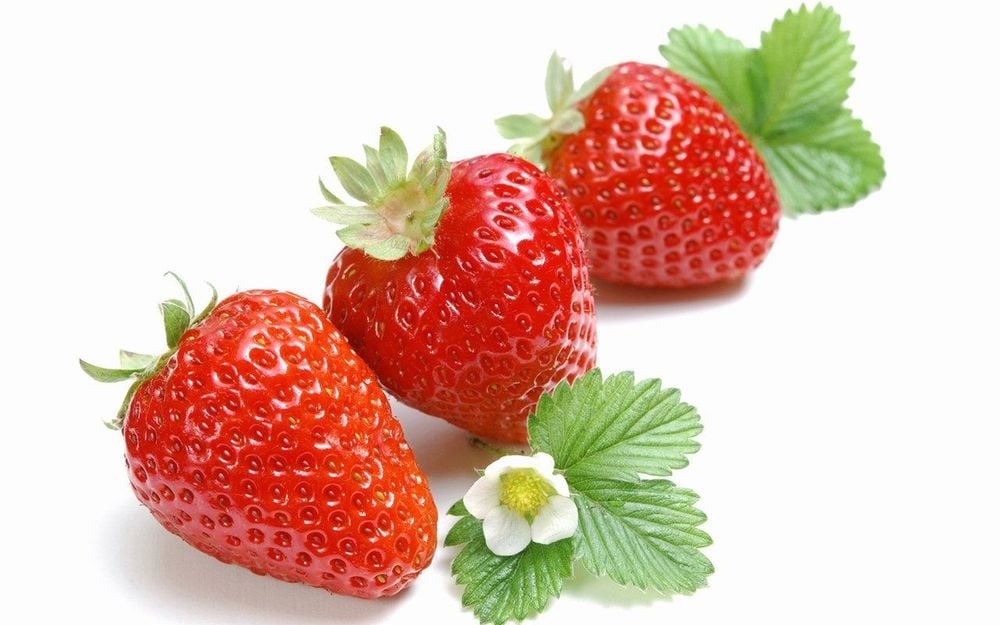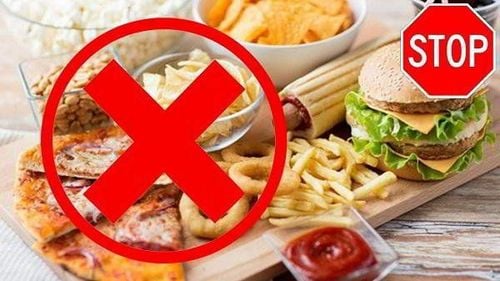Strawberries are a delicious berry fruit loved by many. However, if you are allergic to strawberries, consuming them can trigger a range of symptoms such as rashes or even anaphylactic shock. Additionally, if you are allergic to strawberries, you should also avoid similar fruits to prevent allergic reactions.
1. Symptoms of Strawberry Allergy
Similar to other food allergies, strawberry allergy typically presents symptoms within a few minutes to 2 hours after eating. Common symptoms include: throat tightness, mouth itching, skin rash, skin itching, wheezing, coughing, nausea, stomach pain, vomiting, diarrhea, dizziness, etc.
For mild or moderate cases, antihistamines can be used for treatment. These over-the-counter drugs can reduce allergy symptoms. However, over-the-counter medications are not very effective for individuals with severe allergic reactions.
Severe strawberry allergies can lead to life-threatening reactions called anaphylaxis. Anaphylaxis involves multiple symptoms occurring simultaneously and requires immediate emergency treatment. Symptoms of a severe allergic reaction include: tongue swelling, airway obstruction or swelling in the throat, severe low blood pressure, rapid pulse, dizziness, loss of consciousness, etc.
Anaphylaxis is treated with epinephrine, injected with an EpiPen (auto-injector). People with severe allergies should carry an EpiPen with them.
2. Causes of Strawberry Allergy
Being allergic to strawberries means you are allergic to food. Food allergies are quite common, affecting 6-8% of children under 3 years old and 9% of adults.
Food allergies occur when the immune system reacts to a food you have eaten or come into contact with. Your immune system mistakenly identifies the food as harmful (like bacteria or viruses). To fight it off, the body produces and releases histamine into the blood. Histamine can cause a range of symptoms, from mild to severe.
Food allergies are different from food intolerances. Food intolerances do not trigger an allergic reaction but may cause symptoms similar to food allergies. Food intolerances can be due to factors such as food poisoning or the lack of a digestive enzyme for a specific food component. Doctors can distinguish between food allergies and food intolerances.
Risk factors include family history of allergies, eczema, or asthma, which increases the likelihood of food allergies, especially strawberry allergies. You can also develop allergies without a family history of allergies. The risk of food allergies may increase in infants up to 7.5 months old who have not yet started solid foods. Therefore, you should introduce solid foods to babies when they are 5.5 - 7 months old. If a child shows allergic symptoms after eating strawberries, you should remove them from the child’s diet.

3. Foods to Avoid for Strawberry Allergy
Strawberries belong to the rose family. Other fruits in this family include pears, peaches, cherries, apples, raspberries, and blackberries. If you are allergic to one fruit in this family, you may also be allergic to strawberries.
Some individuals may experience cross-reactivity with symptoms such as mouth itching, throat itching, and swelling inside the mouth and throat. This allergic reaction is linked to pollen allergies. Strawberries and other fruits in the rose family are related to birch pollen allergy (hay fever).
Those allergic to strawberries should avoid eating them and foods containing strawberries, even in flavoring or as decorations on cakes (even if you only eat the cake and not the strawberries),... You may also be allergic to fruits related to strawberries, such as peaches, apples, or blackberries.
4. When to See a Doctor?
If you suspect you have a food allergy, you should see a doctor. The doctor will discuss your allergy symptoms and family history. They may also suggest allergy tests, including: skin tests, an elimination diet (removing suspected allergy-causing foods), blood tests, or food challenges (to determine if you are allergic to a specific food).
5. Alternative Foods
Avoiding strawberries doesn’t mean you can’t enjoy other fruits. However, you should avoid fruits related to strawberries to prevent allergic reactions. Instead, you can eat bananas, blueberries, and melons, as they do not belong to the rose family.
If you can’t eat many fruits and vegetables due to allergies, you should consult with a doctor about supplementing with the necessary vitamins and minerals. Some recent studies are looking into breeding less allergenic strawberries. Many studies show that non-red strawberry varieties may reduce allergic reactions. Perhaps one day, you may be able to eat strawberries even if you're allergic to them.
You can completely avoid strawberry allergy symptoms by avoiding strawberries and other allergy-causing foods. Since strawberries are used to flavor many foods, you need to carefully check the ingredient labels before eating. When dining out, be sure to discuss with the restaurant staff to ensure your meal does not contain strawberries.

To arrange an appointment, please call HOTLINE or make your reservation directly HERE. You may also download the MyVinmec app to schedule appointments faster and manage your reservations more conveniently.
Reference source: healthline.com












